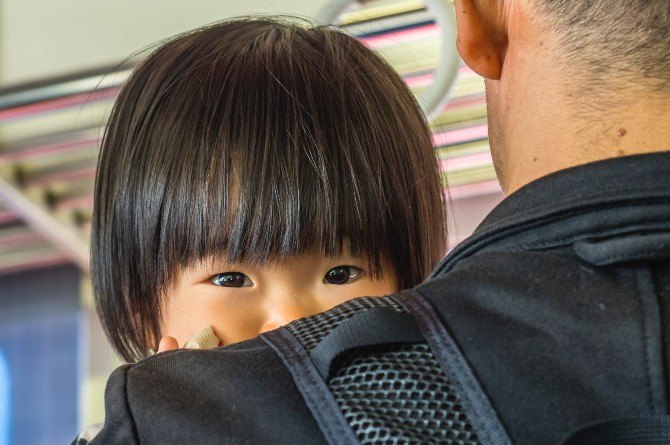The conversations around mental health are still not as open as they should be, but the silver lining is the fact that we are getting there.
What can you read in this article?
- How to build Childrens’ emotional well-being?
- How do get children to process emotions?
The conversation is important not just for adults but for children too. The pandemic and the resultant lockdown was an eye-opener on how kids suffered from depression, anxiety, and other complications, as much as adults did. Now is the time to take childrens’ emotional well-being more seriously and work actively towards it.
That’s because a child’s mental health gives them the perspective to look at the world around them. A child with better mental wellbeing will be able to cope with life’s challenges and stress more maturely, than someone who is struggling with them. And you know it better than this struggle can be seldom explained to other people.
That’s exactly why we need to encourage good mental health as part of children’s holistic development. And parents need to take onus for this.
How to build Childrens’ emotional well-being?

Image Source: Unsplash
Good mental health is like a foundation for a good life. If you aren’t fit mentally, your physical well-being won’t support you. Moreover, you won’t be able to build positive social, emotional, behavioral, and communication skills.
Each of these is extremely important out in the real world.
So start early and help your child work on their mental wellbeing. Here’s how you can contribute as parents:
1. Tell your child you love them
There’s nothing more validating to a child than their parents reassuring them about things. You are your child’s biggest support system. So make sure to tell them this and be there for them.
It will help them trust you enough to open up about any turmoil they are going through today or in the future.
2. Show signs that you love them
As much as you need to verbally communicate your love, you also need to do with your actions. Your body language makes a big difference in how people perceive you. And your child should find you welcoming.
Make eye contact with them talk to them, give them a hug, and smile at your child regularly. When having an intimate conversation where you think your child may be scared to speak up, try talking to them by coming down to their eye. You will appear less intimidating and it will help them communicate easily.
3. Praise your child
Positive reinforcement goes a long way in helping guide your child. It means appreciating their efforts and motivating them to do better.
When we say praise your child, remember to encourage their effort more than the result. And always encourage them to try harder than next time. It will motivate them to try newer tasks and challenge their ability.
4. Listen to what they say
What may be casual banter to you might just mean the world to your child. So if they want to talk, make sure you give them time and attention. And you do need to do this every day.
You can also mix it up by doing an activity together like reading, playing games, or drawing, which allows both of you to open up better.
READ MORE:
Gustong maiwasan ang mental health problems sa bata? Ito ang dapat kinakain niya, ayon sa study
10 parenting mistakes na nakakaapekto sa mental health ng bata
To safeguard your Child’s mental health during COVID-19, look after yourself
5. Work with them to resolve conflicts
Be it home, school, or the office, conflicts are part of your life and also that of your child. And the earlier you expose them to it positively, the better they will be at conflict resolution.
6. Encourage your child to meet people from other communities
Singapore being the melting pot of cultures that it is, encourage your child to speak to people from other communities. Wave to neighbors, interact with kids in school, attend local festivals, and more.
The more you expose kids to different people from varied walks of life, the more accepting they will be towards newer things. And that’s a great way to help reduce anxiety in new situations.

Image Source: Unsplash
How do get children to process emotions?
Kids go through the same gamut of emotions including fear, disappointment, sadness, anxiety, joy, frustration and so much more.
When they learn to cope with these emotions, they are more capable of handling difficult and stressful situations not just in school but at work and even in relationships.
Here are some ways kids manage their emotions easily:
- Talk to your child about emotions and acknowledge their responses. Each emotion is different and you need to speak to them about why it’s natural to react in a certain way.
- Role-play with your child about how to handle volatile situations that could be draining. What to do if a child is troubling them or how to react if they don’t like something among friends.
- Be a supportive parent to your child. Understand what’s bothering them and be supportive of it. Give them a hug when they need it and let your child know it’s a natural process and it’s okay. Your reassurance will help them tackle the situation better on their own the next time.
- Help your child independently manage small worries so they can avoid turning them into bigger problems. Encourage your child by gently exposing them to situations that make them anxious. Too shy to meet new people? Have trouble speaking in front of others? Do it one step at a time to avoid overwhelming them.
5 ways to promote Childrens’ emotional well-being
- Make rules in the family about behavior and make sure your child is a part of the development. Adjust the rules as children grow and ensure they learn about consequences along the way.
- Set realistic goals for your child depending on their age and maturity. Achieving these goals, be it academic or extracurricular, will help them build confidence and their self-worth.
- Praise your child’s efforts more than the goal itself. The goals will keep shifting post as they grow, which is why children should prepare themselves to work harder and level up.
- Encourage your little one to try new things and take risks. Encourage them also fail and then try again.
- Good physical health is as important as mental. Don’t discount it.
Childrens’ emotional well-being can improve with time. While some children are already confident and in control of the situation, others take time. Every child is different and the last thing you should do is compare your child.
Children have their own learning curve and they do come around eventually.
Source:
Raising Children
 Money Tips
Money Tips Building a BakuNation
Building a BakuNation Becoming a Parent
Becoming a Parent Ages & Stages
Ages & Stages Parenting
Parenting Health & Wellness
Health & Wellness Education
Education Lifestyle Section
Lifestyle Section Become a VIP
Become a VIP Press Room
Press Room TAP Recommends
TAP Recommends Shopping
Shopping Community
Community Rewards
Rewards VIP Parents
VIP Parents
